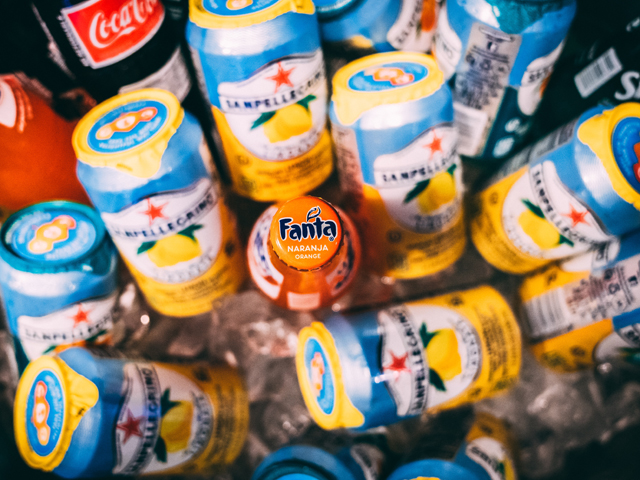Cut Sweet Drinks

Parents want to cut kids' sweet drinks but feel held hostage by marketing
A saturation of sweet drink marketing and discounts is driving pester power in kids as young as two, to the point where parents say they feel powerless to stop their pre-school children consuming the unhealthy beverages.
Researchers found the majority of parents know that sweet drinks are unhealthy for pre-school children, but Australian kids under five are still consuming them in alarming quantities, with parents pointing to persistent product marketing as a key reason why.
The study – recently published in the Health Promotion Journal of Australia – interviewed parents and grandparents to find out what drinks they gave to the children in their care and why, and what would help them to make healthier choices.
Lead author Alexandra Chung, a visiting researcher in Deakin's Institute for Health Transformation and PhD candidate at Monash University, said her previous research showed two in three Australian children were regularly consuming sweet drinks by age two, including cordial, juice, soft drink, and flavoured milk.
"Urgent action is needed to tackle Australia's worrying rate of overweight and obesity. A big part of that is addressing our addiction to drinks packed full of sugar, which we can see is starting from a very young age," Ms Chung said.
Ms Chung said despite many of those interviewed in her latest study saying education was key to changing behaviour, these same parents generally understood the health risks of sugary drinks but instead felt pressured by other factors.
"In contrast to common rhetoric, our study shows children's sweet drink consumption is often influenced by factors beyond parental control," Ms Chung said.
"Individuals have a choice, we're all responsible for our own choices, but if the environment we're in doesn't support us to be healthy, then that makes it really difficult."
Ms Chung said her study identified the key environmental factors driving sugary drink consumption in pre-schoolers were marketing and pricing.
"Parents really talked about marketing in places like supermarkets and on TV. They spoke about product placement and popular cartoon characters being used to market sweet drinks to children, leading children to easily identify and repeatedly request these products, making it harder to turn them down," she said.
"Parents are worried about being judged, they don't want to be one of the parents with a screaming kid at the supermarket, so they just put it in the trolley.
"Pricing was also considered a very influential factor, especially that common occasion when families are outside the home and it's cheaper to buy sweet drinks than it is to buy water. A particularly stark example raised by parents was the $1 frozen cokes at fast food outlets.
"The low price of tap water was viewed as an incentive to consume water, but a lack of availability of places to refill water bottles and the inconvenience when bottles were forgotten was a barrier.
"Both food marketing and pricing are beyond parents' control, which means we need to be doing more from a policy point of view to step up and make the healthy choice the easy choice.
"Parents have to face very difficult decisions multiple times per day. So from a health perspective, if we can make the environment easier for parents why wouldn't we?"
Co-author Associate Professor Kathryn Backholer, from the Global Obesity Centre in Deakin's Institute for Health Transformation, said it was important to focus on improving the diets of pre-school age children, as it was at this time that children developed eating and drinking habits that carried on throughout their life.
"Sweet drinks are the single greatest contributor to the free sugars consumed by Australian children, and are therefore a key risk factor for childhood obesity and dental decay," Associate Professor Backholer said.
"Our children deserve to grow up within a food environment that sets them up for a lifetime of good health."
Photo by Matt Botsford on Unsplash
MORE



